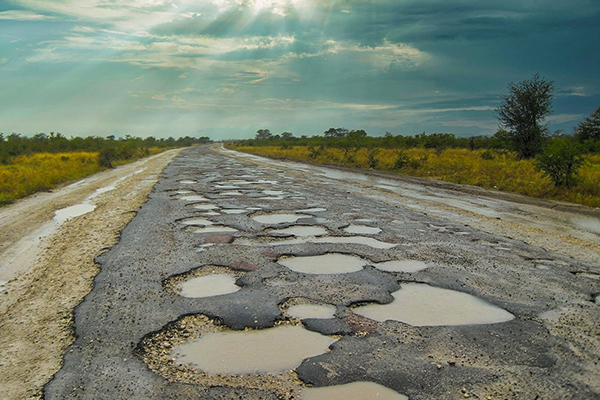In this extract from the latest Infrastructure Report Card (IRC) by the South African Institution of Civil Engineering (SAICE), the overall condition of South Africa’s infrastructure has been rated D, the lowest rating since the first IRC launched in 2006.
The scorecard is based on a five-point scale – A (world-class), B (fit for the future), C (satisfactory for now), D (at risk of failure), and E (unfit-for-purpose) – and features a snapshot of the current condition and performance of 32 sub-sectors of infrastructure.
SIXTEEN years ago, the first IRC gave South Africa’s infrastructure an overall grade of D+. The next IRC (2011) noted that the heavy investments in new infrastructure for the 2010 Soccer World Cup had elevated the overall grade to C-. We cautioned that this apparent improvement was not cause for complacency. In the following years, it became evident that the poor attitude to maintenance had continued, and this was reflected in the downturn in the subsequent grade to D+ in 2017.
In 2022, the overall grade for South Africa’s public infrastructure declines further to D, the lowest grade ever recorded by SAICE, which is of great concern.
From the advent of democracy in 1994, South Africa made great strides in improving the quality and distribution of both economic and social infrastructure. However, these gains have not been effectively sustained. Since our first report in 2006, the condition of infrastructure has been in steady decline. For the current period, only three subsectors show improvement while 12 have deteriorated. Of the 13 subsector grades that remain unchanged, 10 were already at risk of failure or worse. When examined in the aggregate, much of our infrastructure is edging closer to failure. Of course, there are pockets of excellent and well-managed infrastructure of every type. But these are no longer the norm. The grades awarded to South Africa’s infrastructure, and the downward trend in its condition, reveal a failure to manage and maintain existing assets.
It must be noted that no single sector of infrastructure operates in isolation – all of them are interconnected. Energy generation requires water for cooling and ports require roads and rail connectivity to serve the economy. So, while we grade sectors separately, there is a tightly woven interdependency between all these facilities. When rail services are inadequate, commerce shifts to the roads, even at a cost premium. When taps run dry, entrepreneurs will supply water in tankers. And some will resist a return to the previous modes of operation, even though the replacement modes are inefficient or inappropriate. Consequently, when public infrastructure is inadequate or unreliable, the resulting disruptions occur at a net cost to the fiscus and weaken the developmental role of the State.
Broadly speaking, it is evident that, with the exception of energy generation, economic infrastructure remains in a satisfactory condition – even those assets that have deteriorated, such as heavy freight rail and airports, maintain grades of B or C. However, the further degradation of social infrastructure paints a dismal picture of the plight that ordinary people face to access basic services of water, sanitation, health, education, public transport and electricity.
Altogether, the situation cries out for urgent and sustained attention.
